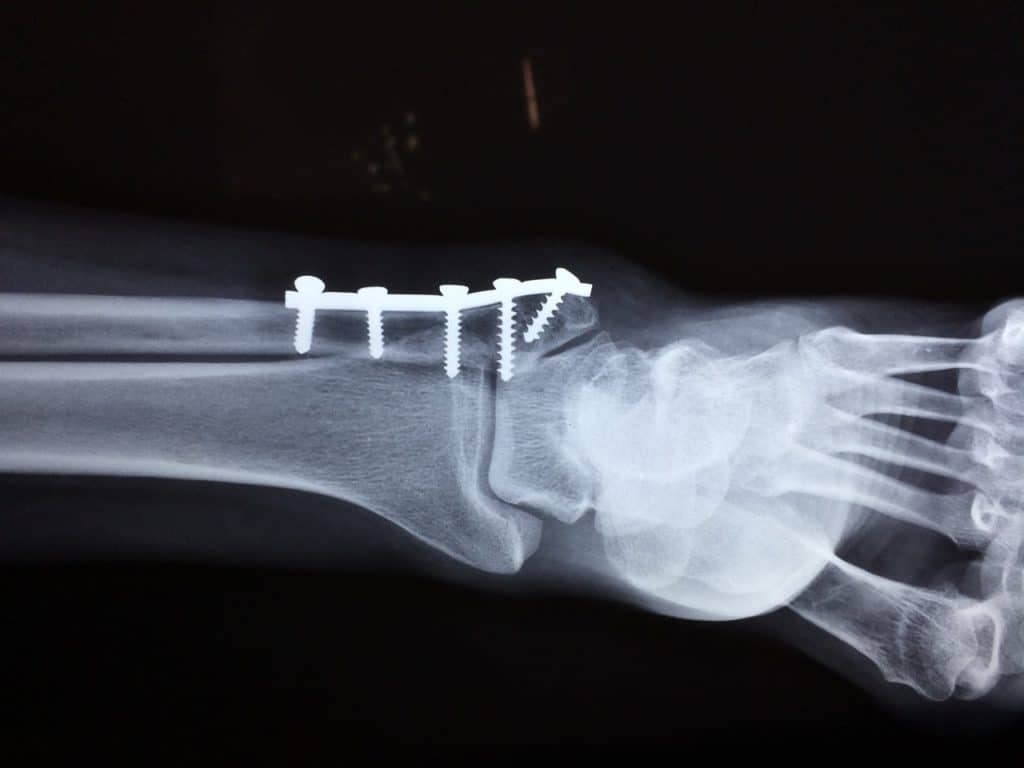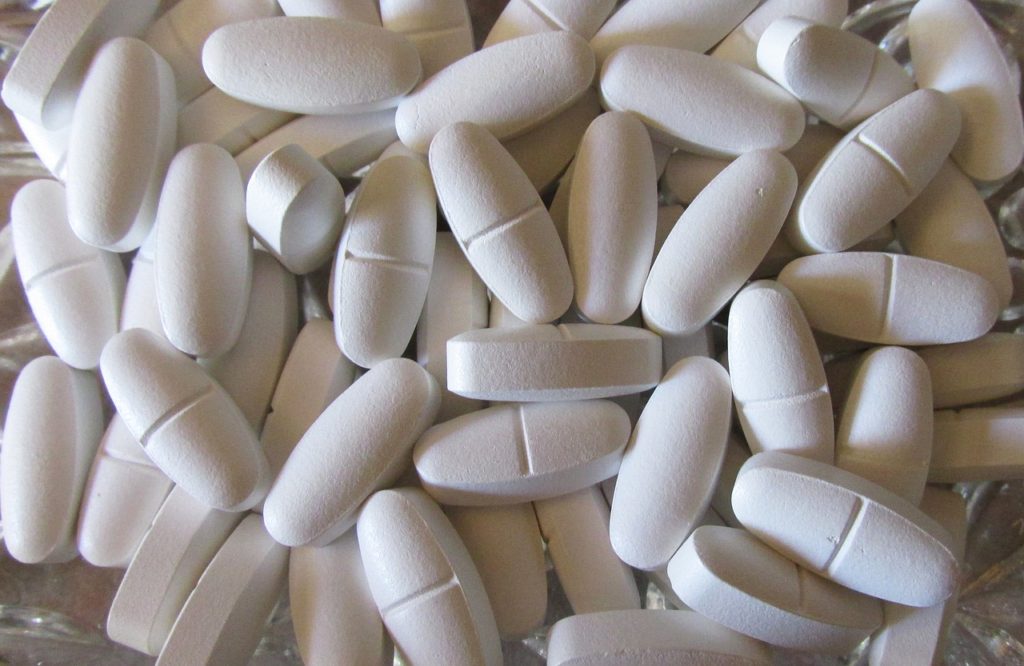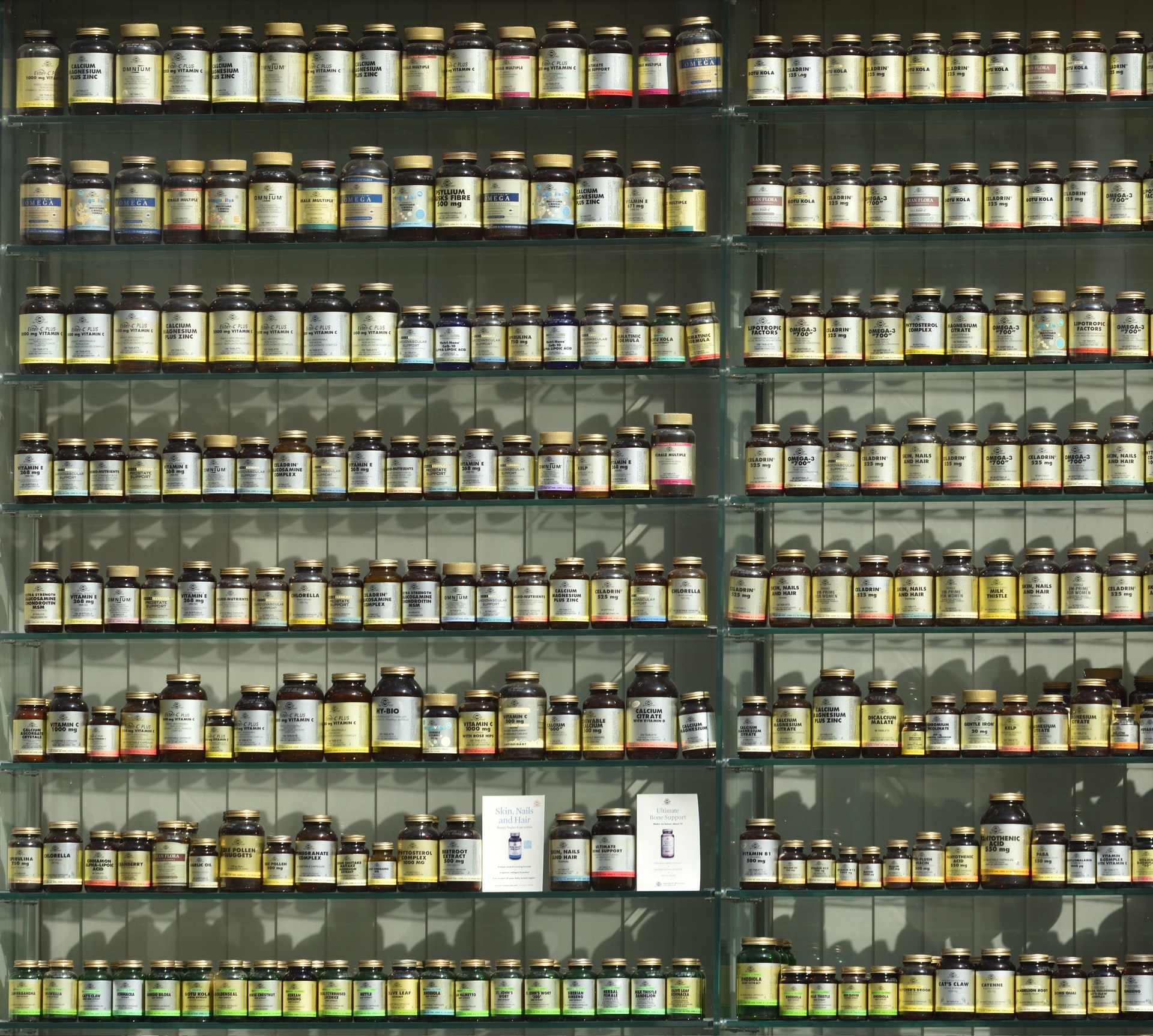If you’re a woman over 50 and you’re curious about calcium supplements, listen up.
One in three women over 50 will suffer from a bone fracture due to osteoporosis. Getting enough calcium into your diet can help prevent this from happening to you. But does that calcium need to come from a supplement?
Meet Janet (or Jane, or Susie…)

Janet is a 50-something woman painting her bedroom when she accidentally placed her foot in the paint tray. She slipped and landed on her right side. It was a slow and gentle fall, not hard at all, but startling nonetheless.
A trip to the hospital and some X-rays revealed the shocking news. Janet had shattered the bones in her leg. When I hear the word ‘shattered,’ I think of glass breaking into small pieces. Well, that is precisely what her bones did. I shiver thinking about it!
You see, Janet knew she had osteoporosis, but she was not clear on what this meant and what she could do about it. It seems that her doctor had not been clear on what she could do either.
The Role of Calcium in Bone Health
Calcium is one of the main components of bone development. Over 99% of the calcium in our bodies is stored in the living tissue of our bones and teeth, which provides this hard tissue with its strength.
Vitamin D plays a substantial role in helping the body absorb the calcium released from our bones. In fact, during Vitamin D deficiency, bone metabolism is significantly affected due to reduced active calcium absorption.
With this level of impact, our bodies can’t support the vital function of ‘bone-remodeling.’ In simple terms, ‘bone-remodeling’ is the process where mature bone tissues are removed from the skeleton, and new bone tissue is formed. This is a lifelong process that occurs naturally but also occurs when a bone is injured.
The production of calcium and our bodies’ ability to absorb that calcium is paramount to our overall skeletal health. However, after the age of 50, bone loss accelerates and outpaces our bodies’ ability to form that new bone tissue. This is especially true as women enter menopause.
Ultimately, this can lead to osteoporosis.
What Is Osteoporosis?
Osteoporosis means ‘porous bone.’ Osteoporosis occurs when our bones break down faster than they renew themselves.
Bones become thin and lose their strength as they become less dense, leading to broken bones. Broken bones cause pain, disability, and make everyday activities extremely difficult.
Fractures most commonly occur in the spine, hips, and wrists. Most people ignore back pain as merely a normal part of aging. But it isn’t normal.
I’m going to throw some statistics your way – not to alarm you, but to help you understand how important it is to take care of your bones.
- 1 in 4 women who have a new spine fracture has another one within one year.
- After a hip fracture, 1 in 4 people die or never walk again.
- If you have a broken bone after a mild injury, this could signal you have osteoporosis.
- Almost 50% of women will experience an osteoporosis-related bone fracture.
- In women over 45, fractures due to osteoporosis result in more days spent in the hospital than diseases like breast cancer, diabetes, and heart attack
If you would like to know if you are at risk of having osteoporosis, take this Osteoporosis Risk Check provided by the Osteoporosis Foundation. Remember, it is a tool, not a diagnosis. But it can help you have a thorough conversation with your doctor.
The Efficacy of Calcium Supplements

The research on calcium supplements is exceptionally inconclusive.
We know that getting enough calcium in your diet is crucial to good bone health. There is also evidence that dietary calcium may help prevent osteoporosis.
What is unclear is whether or not calcium supplements actually increase bone density or prevent bone fractures. In fact, some studies indicate that higher doses of calcium may produce unwanted side effects. Some of these side effects can, in fact, be life-threatening:
- Increased risk of kidney stones
- Increased risk of heart attack
- Stomach acid production
- Constipation
- Drug interactions
Understandably, this confuses us when we ask ourselves, should I take a calcium supplement or not? Unfortunately, the answer is, it depends. For women 50 or younger, the total amount of calcium per day, from both diet and supplements, about 1000mg. For those over 50, it goes up to 1200mg. In addition, calcium is absorbed best when consumed in amounts of 500-600mg or less.
For men, however, the recommendations vary yet again. The same daily 1000mg dosing applies, but for men under 70. For men over 70, the dosing goes up to 1200mg. Here’s where some caution is injected. Because of a possible connection between calcium and prostate cancer, yet another study recommends dosing for men at 700mg.
As you can see, the science in not very clear cut at all when it comes to the efficacy of taking calcium supplements.
So, what should you do?
Meeting your Calcium Needs through Diet

Our body processes calcium differently when obtained from a food source as opposed to a supplement.
The good news is, if your diet is healthy and well rounded, you can get all the calcium you need right from the food you eat, with no additional supplementation needed.
Eating your calcium also ‘drips’ the recommended dosing throughout the day, so you don’t have to worry about absorption rates, or
In this case, a healthy and well-rounded diet means:
- 3 – 5 servings of fruits and vegetables every day
- Lean protein
- Low-fat dairy products
- Whole grains
You can also look for calcium fortified foods.
Calcium Rich Foods
Here is a list of foods that are high in calcium that you can start incorporating into your diet today:
| Produce | Serving size | Estimated calcium in milligrams |
| Collard greens, frozen | 8 oz | 360 |
| Broccoli rabe | 8 oz | 200 |
| Kale, frozen | 8 oz | 180 |
| Soybeans, green, boiled | 8 oz | 175 |
| Bok Choy, cooked, boiled | 8 oz | 160 |
| Figs, dried | 2 figs | 65 |
| Broccoli, fresh, cooked | 8 oz | 60 |
| Oranges | 1 whole | 55 |
| Seafood | Serving size | Estimated calcium in milligrams |
| Sardines, canned with bones | 3 oz | 325 |
| Salmon, canned with bones | 3 oz | 180 |
| Shrimp, canned | 3 oz | 125 |
| Dairy | Serving size | Estimated calcium in milligrams |
| Ricotta, part-skim | 4 oz | 335 |
| Yogurt, plain, low-fat | 6 oz | 310 |
| Milk, skim, low-fat, whole | 8 oz | 300 |
| Yogurt with fruit, low-fat | 6 oz | 260 |
| Mozzarella, part-skim | 1 oz | 210 |
| Cheddar | 1 oz | 205 |
| Greek yogurt | 6 oz | 200 |
| American cheese | 1 oz | 195 |
| Feta cheese | 4 oz | 140 |
| Cottage cheese | 4 oz | 125 |
| Fortified food | Serving Size | Estimated calcium in milligrams |
| Almond milk, rice milk or soy milk, fortified | 8 oz | 300 |
| Tofu, prepared with calcium | 4 oz | 205 |
| Orange juice fortified with calcium | 4 oz | 150 |
| Cereal, fortified | 8 oz | 100-1,000 |
Final Words
The statistics for osteoporosis, bone fractures, and mortality are staggering for women over 50.
The fact that calcium plays a significant role in the health of our bones, the resulting risk for osteoporosis is something we should not ignore.
Doing something as simple as pouring a glass of almond milk into a bowl of fortified cereal can be all it takes to keep your calcium at optimum levels.
Check with your doctor to see when you should have your bone density levels checked. It’s a 5-minute x-ray.
Taking the quick Osteoporosis Risk Questionnaire may be worth doing if you are on the fence about your risk.
Have you ever had a conversation with your doctor about your bone health? Don’t overlook this topic. Consider the statistics and make it a priority.
Do you have any favorite calcium-rich foods or recipes that you would like to share with me? Please send me a note on my Facebook page. I would love to hear from you!

